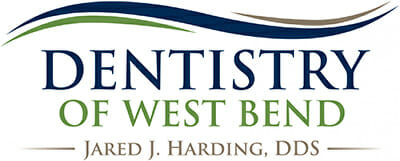Whether you have had a tooth extracted, a new dental implant placed, root canal therapy, or another dental procedure, one of the most common aftercare recommendations is to eat a diet solely of liquids and soft foods for the first 24 to 48 hours after your dental work. This ensures you prevent unnecessary inflammation from occurring inside your mouth while also avoiding inflicting any trauma on the soft tissues around the treatment area that could hinder your recovery and slow the healing process.
If you have an appointment scheduled for a dental procedure, we recommend stocking your fridge and pantry with some of the following soft foods so that you’ll be prepared to stay nourished during your recovery period.
30 Soft Foods to Eat After a Dental Procedure
After having dental work done, you still need to eat. Your mouth, however, will likely be tender, and you’ll need to take care to eat foods that will not damage your soft tissues, cause inflammation inside your mouth, or put you at risk of getting an infection while you heal. The following foods are recommended after a dental procedure.
- Applesauce
- Bread (soaked in soup with no hard crust)
- Canned fruits like pears and peaches
- Chicken salad (no celery)
- Cottage cheese
- Cream of wheat
- Deli meats
- Eggs
- Fish
- Gelatin (Jell-O)
- Herbal teas (not hot)
- Hummus
- Ice cream
- Mashed fruits like avocados or bananas
- Mashed potatoes
- Meatloaf
- Milkshakes (eaten with a spoon – never use a straw)
- Oatmeal
- Pasta
- Popsicles (be careful not to suck on the popsicle)
- Porridge
- Pudding
- Rice
- Smoothies (but choose fruits without seeds and do not add flax, chia, or any other type of seed)
- Soft cheeses
- Soups (warm, but not hot)
- Tofu
- Tuna salad (no celery)
- Vegetables cooked until they are soft (boiled carrots, mushy peas, soft green beans, etc.)
- Yogurt
Foods to Avoid After a Dental Procedure
Just as there are foods that are advisable to eat after a dental procedure, there are also some foods that you should avoid at all costs because they can damage your soft tissues as they recover, hinder the healing process, and even cause inflammation in your mouth.
- Hard foods
- Acidic foods (such as citrus foods)
- Foods with seeds
- Popcorn, nuts, potato chips, hard crackers, or pretzels
- Spicy foods
- Foods that require a lot of chewing like steak, taffy, or caramels
- Bagels
- Bread with hard crusts
- Cookies
- Alcohol
- Caffeine
- Carbonated beverages
- Hot drinks
In addition to avoiding these foods, you should also be careful not to drink any beverages using a straw. The vacuuming created inside your mouth when sucking through a straw can easily dislodge any blood clots that have formed, causing complications with your recovery.
Additional Tips for Recovering From Dental Work
In addition to eating the right foods after dental work, these general dental work aftercare instructions will ensure you enjoy a swift and smooth recovery while you heal from your dental procedure:
- Stay hydrated by drinking lots of water.
- Relieve pain with over-the-counter anti-inflammatory medications such as ibuprofen or acetaminophen.
- Mitigate swelling by applying a cold compress to your cheek in 15-minute intervals.
- Relax with your head elevated to prevent inflammation and fluids from pooling in the recovery area.
- Avoid all strenuous activities for at least 24 hours.
- Do not smoke or use tobacco products of any kind.
- Take all prescription medications exactly as prescribed.
- If bleeding persists, try gently holding a moist (but not hot) black tea bag on the affected area to help a blood clot form.
- You can rinse your mouth with water but do so very gently with warm salt water to avoid dislodging any blood clots.
What to Do If You Think Something Isn’t Right After Dental Work
After most dental procedures, it is normal to experience a little bleeding, a bit of swelling, and some pain, tenderness, or slight discomfort. However, any pain that is not easily managed with over-the-counter anti-inflammatory medications or a medication prescribed for your recovery is cause for concern. Additionally, any severe swelling, uncontrolled bleeding, dry sockets, dislodged blood clots, or signs of infection should be addressed by our dentist as soon as possible.
If you experience any of these issues after dental work, we recommend contacting our office immediately.
Contact Our West Bend Dentist With Your Follow-Up Questions and Concerns
Our dentist, Dr. Jared Harding and the entire team at Dentistry of West Bend are here for you! If you are currently recovering from a dental procedure and you have any questions about your recovery or aftercare instructions, we always welcome you to contact our office. We will be happy to talk with you about your aftercare recommendations, the symptoms you might be experiencing, or any other concerns you might have. Please feel free to contact our West Bend dental office today.


Recent Comments